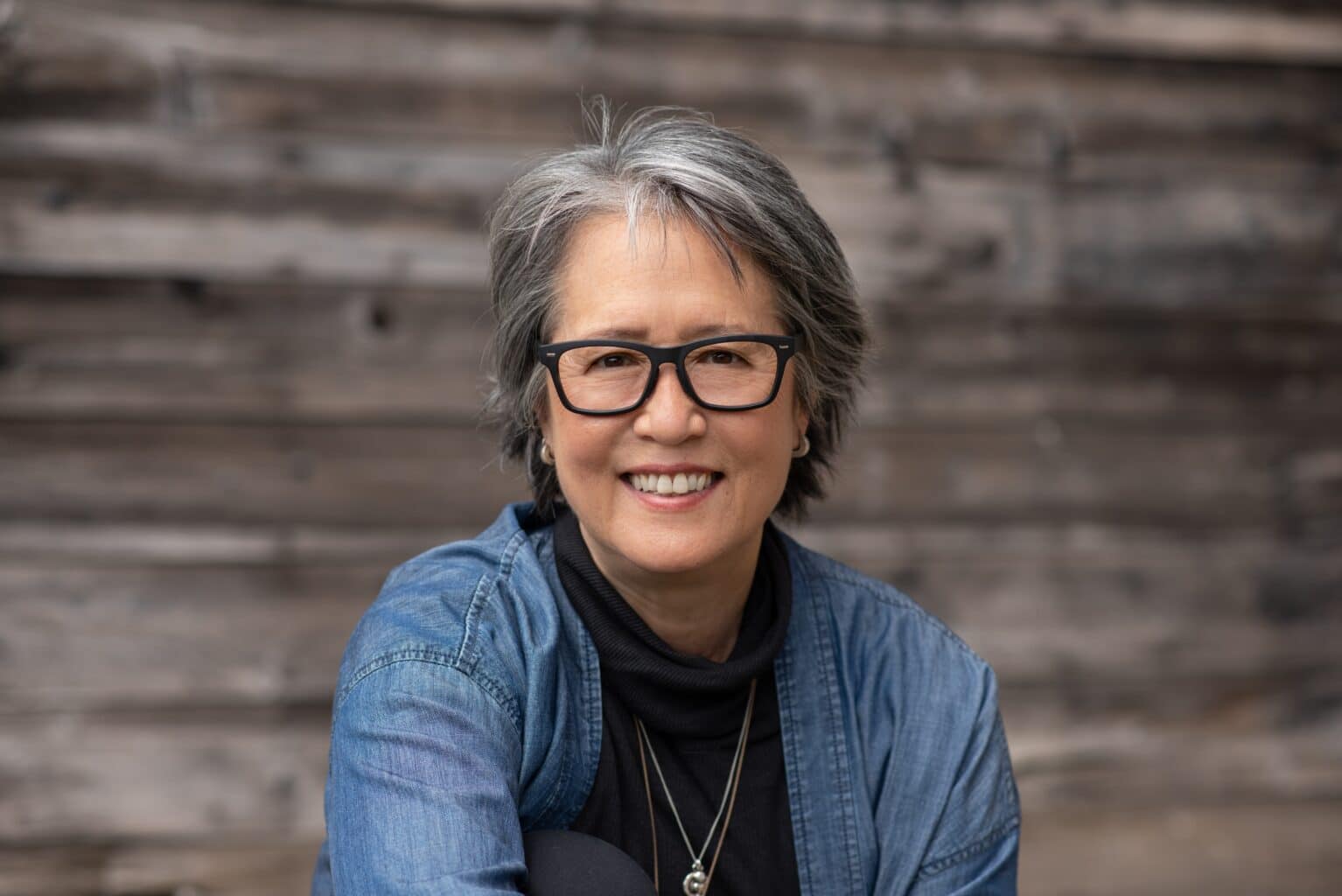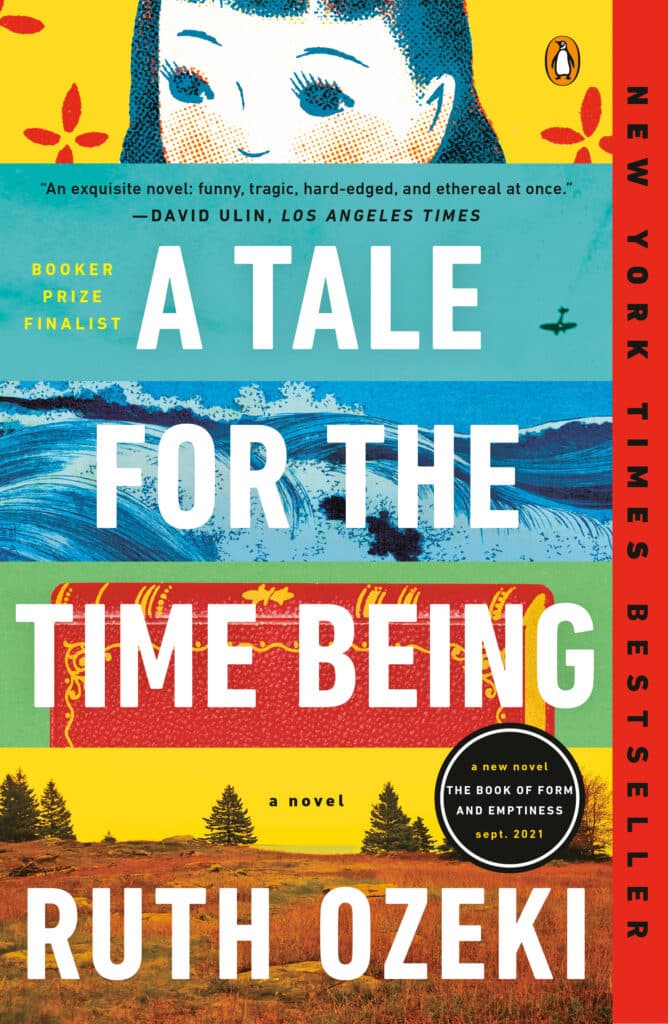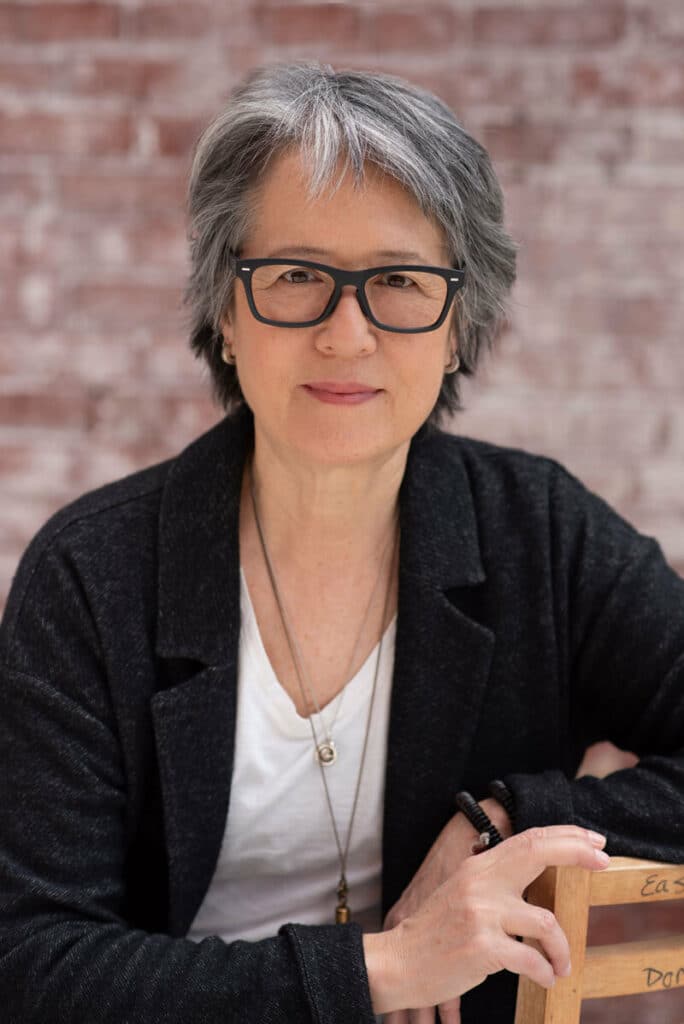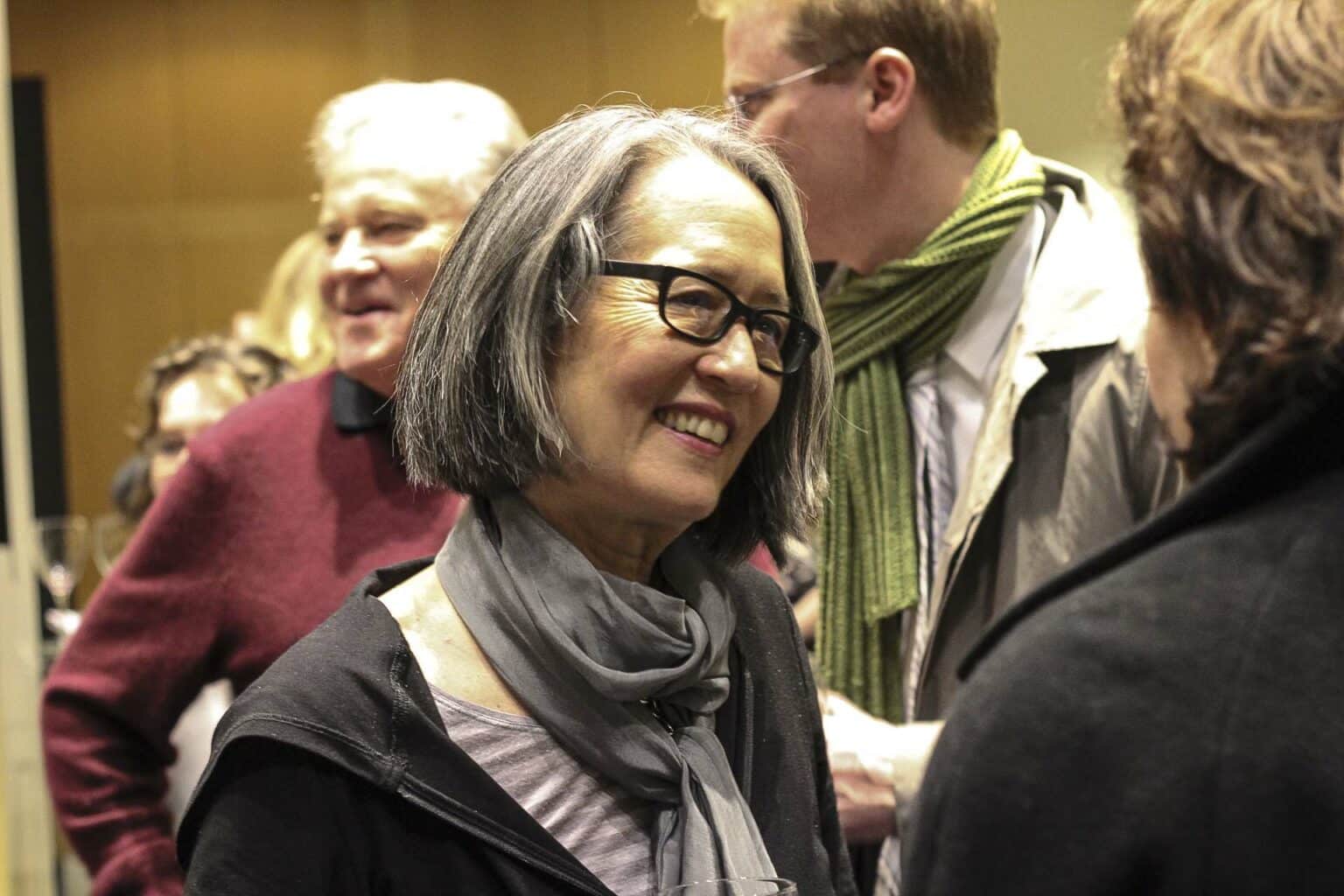Tickets for Everybody Reads 2023 on March 16 are available now! Click here for more information.

On March 16, in partnership with Multnomah County Library and The Library Foundation, Literary Arts will present Ruth Ozeki as the culminating event of Multnomah County Library’s Everybody Reads 2023 program.
This year’s program centers on Ozeki’s novel, A Tale for the Time Being.
Full of Ozeki’s signature humor and deeply engaged with the relationship between writer and reader, past and present, fact and fiction, quantum physics, history, and myth, A Tale for the Time Being is a brilliantly inventive, beguiling story of our shared humanity and the search for home.
In this interview with Bustle, Ozeki discusses the inspiration for characters in A Tale for the Time Being, the idea of the present moment in the book and in real life, and the role of the author.

“The neat thing about novels is the novel is a field of interaction, a field of collaboration. So it’s my job to create the parameters of that field, and then I propose it to the world, and then you and other readers step into the field. We collaborate. We create this world. And to go back to this idea of quantum many-worlds, the Tale for the Time Being that you and I create is different than he [she gestures to a stranger] and I create, or whatever. It’s a many-worlds phenomenon. The worlds proliferate, which I think is very cool.”

In addition to being a critically-acclaimed novelist and filmmaker, Ozeki is also an ordained Zen Buddhist priest.
In this interview with The Guardian, she discusses meditation, her turn to Buddhism, and winning the 2022 Women’s prize for her latest title, The Book of Form and Emptiness.
“I’ll close my eyes and sort of drop into a scene in my imagination, and then I’ll just hang out there. You’re aware of all of the sensations in sight, sound, smell, taste, touch. You’re able to notice a little bit more about what’s going on with your characters.”
Ozeki’s work has been shortlisted for the Man Booker Prize and the National Book Critics Circle Award, and has won prizes including the Annual Massachusetts Book Award and the BC Yukon Book Prize. How does an award-winning novelist approach her craft, and what influences her?
She talks about the first book she ever loved, her writing process, and more in this interview with Lithub.

“Mornings are for writing. I like to get up, make myself a pot of black coffee, and go straight to my computer while I’m still half asleep. In that liminal space, when my writing mind is still dreaming and my critical mind hasn’t yet woken up, it’s easier to slip into a fictional world.”
Find out more about Ozeki and her work below.
Ruth Ozeki was born in New Haven, Connecticut, to two linguist parents who both worked at Yale University. Ozeki attended Smith college, where she graduated summa cum laude and earned her Bachelor’s in English literature and Japanese studies. Following graduation, she received a Japanese Ministry of Education fellowship and studied classical Japanese literature at Nara Women’s University. She has said, “I grew up thinking I was Japanese. Then when I went to Japan, I realized that I was American. That was shocking but also a wonderful completion, realizing that I was neither here nor there but occupied some liminal space, neither in one culture or the other. That’s a great vantage point.”
In 1985, Ozeki returned to New York and began working on films as an art director. She worked on props for low-budget horror movies, including Robot Holocaust, Mutant Hunt, and Necropolis. She eventually began making her own films. Body of Correspondence(1994) won the New Visions Award at the San Francisco Film Festival. Halving the Bones(1996) explored her mother’s Japanese roots and her connection to her maternal grandmother, and aired on PBS, at the Museum of Modern Art in New York, the Asian American Film Festival in San Francisco, and the 1996 Sundance Film Festival.
While she was working on films, she was also writing fiction. Ozeki published her first novel, My Year of Meats, in 1998. The novel satirizes global meat and media production through the story of Jane and Akiko, and their involvement in a Japanese television show that promotes beef consumption. The book won the Kiriyama Pacific Rim Award, the Imus/Barnes and Noble American Book Award, and a Special Jury Prize of the World Cookbook Awards in Versailles. Ozeki has said, “As a former documentary filmmaker and now a fiction writer, I’ve always been interested in notions of authenticity, representation, dissemination, truth, and fiction.”
Her second novel, All Over Creation (2003), also deals with food production. The novel takes place in Idaho, and tells the story of Yumi Fuller, a Japanese American who returns to her parents’ potato farm in Liberty Falls, Idaho. The book deals with the issues of genetic food modification and agri-business. Barbara Kingsolver said of the book, “This is Edward Abbey’s The Monkey Wrench Gang updated by thirty years, with modern environmental challenges on the map and women in the front seat, driving the story.”
Ozeki’s A Tale for The Time Being followed in 2013. In the novel, the diary of Nao, a suicidal Japanese teen, washes ashore on an island off the coast of British Columbia following a tsunami, where it’s discovered by a novelist named Ruth. The novel was shortlisted for the Man Booker Prize and the National Book Critics Circle Award. In their review, the Washington Post said it “combines great storytelling with a probing investigation into the purpose of existence.”
In 2016, Ozeki published the short memoir The Face: A Time Code. The book was part of The Face series, a collection of works put out by Restless Books where “a diverse group of writers takes readers on a guided tour of that most intimate terrain: their own faces.” The Star Tribune said that Ozeki’s “ruminations ripple out from personal and familial memories to wise and honest meditations on families and aging, race and the body.”
Her latest title, The Book of Form and Emptiness (2021) won the 2022 Women’s Prize for Fiction, the 22nd Annual Massachusetts Book Award, the BC Yukon Book Prize, and the Julia Ward Howe Prize for Fiction. The story follows a teenage boy named Benny Oh who, after the death of his father, begins to hear inanimate objects speaking to him, and whose mother becomes affected by a hoarding tendency. Throughout the novel, questions of identity, materialism, mental health, and more are explored in Benny’s encounters, including an ongoing dialogue with an actual“book.” A review in the Los Angeles Review of Books called it “a beautiful, funny, sad, haunting, and extremely moving narrative,” and said that “there has never been a more timely novel.”
Ozeki has practiced Buddhist meditation for many years, and in 2010 was ordained as a Soto Zen priest by her teacher, Zoketsu Norman Fischer. Her spiritual practice permeates both her writing and person life; Ozeki is affiliated with the Brooklyn Zen Center and the Everyday Zen Foundation, and edits the website for Everyday Zen. About her own meditation practice she has said, “meditation helps train the mind to settle and focus and be more perceptive, more aware, which is of course very helpful for the writing practice.”
Today, Ozeki and her husband, German-Canadian environmental artist Oliver Kellhammer, spend their time in New York City and Cortes Island, British Columbia. Ozeki is the Grace Jarcho Ross 1933 Professor of Humanities at Smith College, where she teaches creative writing.
“To some extent, the tension between the writer I am, and the writer I aspire to be, is useful. Tension can be motivating. Tension can be generative, and in fact, maybe creative acts require it. I feel this when I’m writing, the tension between patience and impatience, between knowing and not-knowing. My impatience to know is what spurs me on. If I were totally patient and happy not knowing, I’d never write anything. Why bother?”


